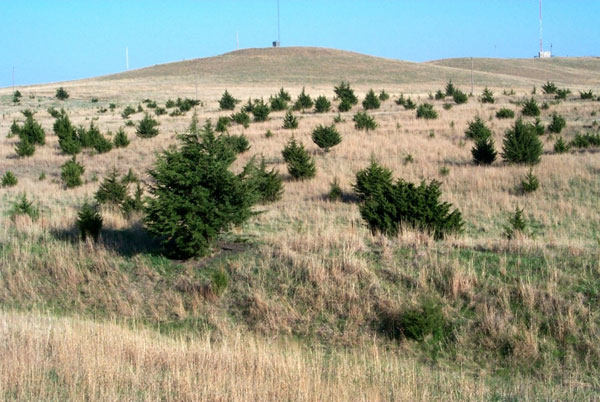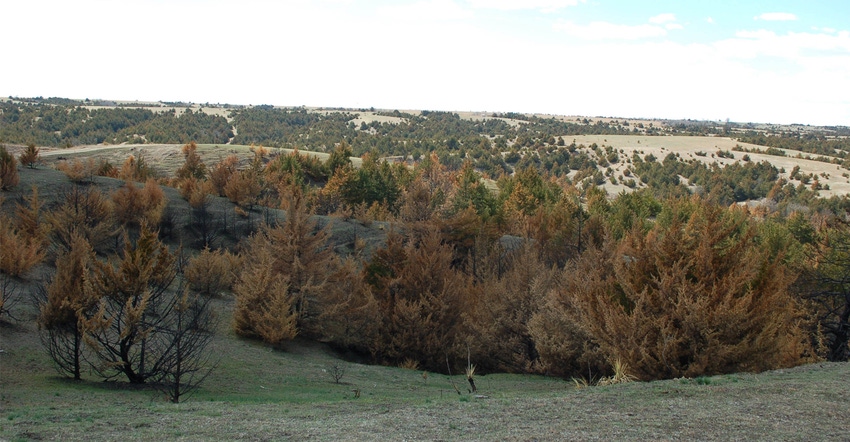
The mantle once carried by former Oklahoma City legislator Richard Morrissette in the fight against the state’s infestation of red cedar trees is apparently now the focus of Okeene Rep. Mike Dobrinski.
While he was a Representative for south Oklahoma City, Morrissette fought to do something about the pesky trees. His efforts started in 2010 and this week, efforts by Dobrinski found some success.
Dobrinski advanced a bill out of subcommittee that would establish a pilot program to address the problem of the red cedar infestation throughout the state, beginning with a concentration on the North Canadian Watershed.
House Bill 2239 passed the House Appropriations & Budget Subcommittee for Natural Resources.
“This has been a problem for a long time,” Dobrinski said. “It’s only been addressed minimally to this point, and now is the time to take action.”
Dobrinski said it would take a large investment of time and money to deal with the problem statewide, but “Getting started in the right place and showing everyone a return on investment is very important.”

Other lawmakers expressed a desire to see the program broadened to include additional parts of the state and said the solution is long overdue.
Dobrinski agreed, pointing to studies going back at least 30 years that showed what would happen if the spread of the invasive species was not curbed.
“You can drive through western and northwestern Oklahoma today and see they were correct,” Dobrinski said. “Water is depleting, and there is nothing more that should get our attention than the threat on our water supply.”

He said the problem is not unique to Oklahoma but getting everyone to agree on how best to address the issue has been the hurdle. That is the purpose of the pilot program.
Identifying Canton Lake as a water source for Oklahoma City will get the most attention, he said.
“The advance of this species is taking over Dewey County, for instance, at five percent per year,” he said. “We just can’t let this go any longer.”
Dobrinski said the initial cost for the pilot program would be $600,000 of state money, but there are also many federal programs that might provide money.
Dobrinski said he’s worked with others to craft the bill, including former state Sen. Don Williams and Trey Lam, executive director of the Oklahoma Conservation Commission. The bill would create the Terry Peach North Canadian Watershed Restoration Act, named after for the former Oklahoma Secretary of Agriculture Terry Peach who died last year.
HB2239 is now available to be considered by the full House A&B Committee.



